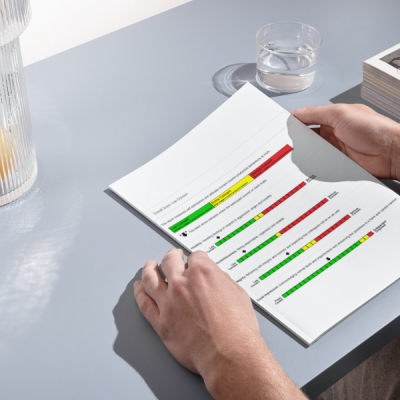Behavioural screening: Helping providers prepare for CDC
21 Dec 2016Much has been written about the growing staff and skills shortage facing the care sector. This is clearly a priority issue, but with staff turnover in the sector averaging 25% for frontline care roles the issue compounds, accelerating the War for Staff we are watching unfold right now. Solutions are often complex requiring a “national” response, however significant inroads can, and have been made “locally”. Many providers addressing workforce issues are finding that one of the most effective strategies available to them is also one of the easiest to implement and delivers some of the highest return on their investment.The cost of staff turnover
The evidence is undeniable – numerous research studies (Australian and International) over the last 20 years have regularly put the cost on staff turnover at around 20% of the individual’s starting salary recruit and mobilise a frontline role. These studies include international research into the long term care sector (both community or residential settings). These are direct costs and regularly do not include lost productivity or the impact on clients and residents – a critical issue in a CDC world. That is a cost of over $7,000 for a personal care worker earning under $40,000 per annum. Even if you don’t believe the research and think the figure is inflated—cut it in half and you are still around $4,000.
Prevention is the cheapest and easiest part of the cure
The most effective, and the cheapest way to improve staff retention is to reduce hiring mistakes. We define hiring mistakes as
- employees who have been terminated, or
- employees who have resigned- but would not be reemployed by the organisation.
Poor hiring decisions are one of the most expensive workforce issues to deal with – because virtually all the recruitment, induction and staff acquisition costs are front loaded, incurred during the early stages of employment prior to confirming the employee is a “keeper”. Increased competition in the sector, funding cuts and the ongoing push for innovation and efficiency are manifesting themselves in providers looking to reduce costs in their operations. Improving hiring decisions unquestionably delivers significant reduced workforce costs and improves performance in key areas such as client and care service delivery, business efficiency, staff morale and revenue growth.
Screening methods are common in most sectors
Methods that effectively and quickly screen candidates have been used extensively in many other sectors, at all levels, however in the care sector it tends to be used mainly for management roles. Psychometric or behavioural screening is primarily introduced into the recruitment process to assess employment suitability, including the individual’s job fit with a role as well as company/candidate fit. The aim of psychometric testing is to gain an accurate “picture” of the candidate’s abilities and behavioural style, thus providing insights into their on the job behaviours. Behavioural screening processes come in all shapes and sizes however most are generic – assessing for example, leadership style/capability generally with little or no acknowledgement to the issues and needs of a specific sector.
We are all fishing in the same candidate pool
The reality is that providers are working hard to improve recruitment processes in a numerous ways. The message from this is clear. As screening improves and organisations are better able to “cherry pick” candidates, it’s not just the shrinking candidate pool, it’s also the reduced talent in that pool that providers have to contend with.
Care Advantage provides the “industry benchmark” for applicant screening in the care sector
From front-line to middle managerial roles, Care Advantage has established job benchmarks, comparing your applicants against the profile of acknowledged good performers for almost all care related roles- for example, care and support workers, RN, AIN, hotel services, homecare workers, care managers etc. An unlimited-use Care Advantage licence ensures that providers are screening frontline candidates at the top of the selection funnel giving greater insight into job-fit, suitability and attitude even before the first interview. “Cherry-picking” at its best – helping providers stay competitive and reduce risk in a time of significant change and disruption within the sector.






